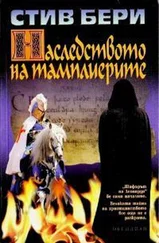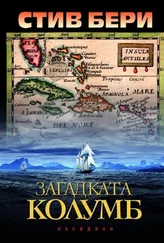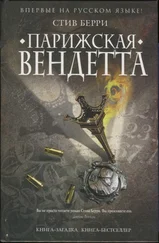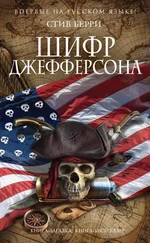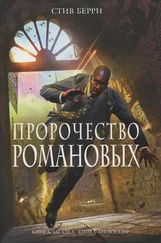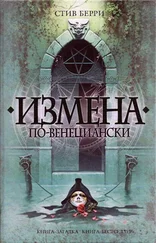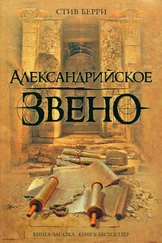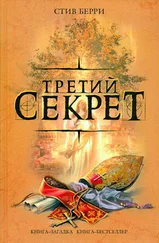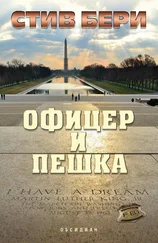“Theodor Pohl?” Cotton said.
Schüb nodded. “It was a decade before I saw the Pohl family again. In Germany. The boy was, by then, quite a specimen. Martin Bormann’s legacy. Named for Bormann’s father. Though he rejected the infant, he still wanted an element of control, so he picked both the parents and name.”
“What was the point of sending the child away?” Cassiopeia asked.
“He’d planned that scenario long before he knew there were twins. If Eva Braun had lived, her child would have never stayed in Africa. So he arranged for a German family to adopt it, one who had been loyal to the Reich. But when she died and he saw the two babies, he thought that was a sign. He was superstitious in many ways. So he decided, then and there, to keep one of the infants as a connection to Germany. He was always distrustful of Africa. He despised the natives, and thought little of Afrikaners. To him, one was subhuman, the other an arrogant imitation of Aryan.”
Cotton was confused. “So he kept what he perceived to be the strong son.”
“That’s correct. He was always distrustful of the Widow, which was why he originally planned on giving the baby away. But with her gone, he felt he could keep the child. He possessed a vision for that boy. I thought at the time those plans were ridiculous, but I have come to learn that his dreams may not have been so preposterous.”
Cotton asked, “Who were the Pohls?”
“Wilfrid Pohl was a minor party official in Hesse during the war. One of Bormann’s many informants, so he rewarded him. But remember, at the time Bormann believed that boy to be the weaker of the two, the one he did not want. So to him, it wasn’t much of a reward.”
“Until the child he kept died,” Cassiopeia said.
“Precisely. Which meant he was given another opportunity with the Rejected One. The weaker, in his mind, of the two.”
“He stayed in contact?” Cotton asked.
Schüb nodded. “Throughout the boy’s childhood. Then, when Theodor attended university in Germany, after Wilfrid Pohl died, he told the boy the truth.”
“Pohl knows who his natural father is?”
“He does, and they became quite close. During the last few years of Bormann’s life, he and I spent a lot of time with the lad. Theodor worshiped him. Of course, the boy never knew he was the Rejected One.”
“When did Bormann die?”
“He managed to live to old age. It was 1981 before the cigarettes finally killed him.”
Cassiopeia shifted on the grass. “You said he had plans. What did Bormann have in mind?”
“He dreamed of his son one day ruling a unified Germany. He hated the Soviets. Despised communists. Loathed Americans. He wanted a Germany different from Hitler’s dream, but still similar in many ways.”
“Fascism would never be tolerated today,” she said.
“Don’t be so sure. Jews are tormented throughout Germany routinely, and have been for a long time. Foreigners are abused, even killed. Laws are being changed by the day in slow, imperceptible modifications, but in clear shifts toward the right. It is happening all over Europe. The cycle has begun again. Slow, but steady.”
Cotton was not impressed. “The basic law of Germany, its constitution, has checks and balances in place that would prevent the rise of a demagogue.”
“You misunderstand,” Schüb quickly said. “I’m not speaking of a Hitler. Or a dictator. Instead, Bormann recognized the need for a duly elected leader. One who comes to power in a fair and open contest. You are correct. The world has changed. Bormann foretold those changes, but he realized that the democratic process could be as effective an instrument of control as totalitarianism. Maybe even more so, since the people would actually choose that leader from a contested slate of candidates. A true popular mandate, if you will.”
A mosquito whined near his ear and Cotton swiped the insect away. He kept listening as Schüb exhaled quickly, as if ridding himself of something unpleasant.
“I remember once we went on another hunt. North into Tanganyika territory. We heard breaking vegetation, snapping branches, heavy footfalls at a river’s edge. It was dark and Bormann shone his light and found the eyes of a rhinoceros. The big beast immediately broke into a trot across the beam and came within twelve meters of us before stopping and letting out a blast of steam. Bormann started to play the light, which sent the animal into a blinding rage. Back and forth the rhino raced across the rays, charging the shadow at the beam’s edge. Strangely, the animal never realized where the beam originated, he just kept marching back and forth, in and out of view. Then all of a sudden he caught the beam in his eye, squared and faced us with his chin out, two horns pointing straight ahead. He took two ponderous steps forward on stump-like feet. He was going to charge. I leveled my gun, but Bormann simply switched off the light and we stood in total darkness. A rhino, the size of a compact automobile, twelve meters away.”
Cotton tried to visualize the scene. Not a place he’d want to be. “What happened?”
“The rhino simply walked away. Never did a thing. Just calmly walked away.” The old man hesitated. “Bormann’s voice came through the dark. He told me to learn from that. Every beast can be led. The talent is in controlling the method and possessing the ability to start and stop, never allowing anyone to know they are being led. He who possesses that, possesses all.”
Cotton stared into the flat enamel eyes that apparently had borne witness to much.
“He liked to instruct,” Schüb said. “He detested talking to the Widow and, after she died, he formulated no new female relationships. Once the boy was killed, I was all that remained, until Theodor became older. So he told me a lot. He often prophesied about many things. I was a pupil in his mind.”
“But you were never impressed?” Cassiopeia asked.
“Remember, history dubbed him Hitler’s shadow. That was quite accurate since the shadow is always darker than the man. This was particularly true of Bormann. I shudder to think what more atrocities Germany would have committed if he had truly been in charge.”
The night’s peace was defiled by a long shrieking wail. A lot of information was coming their way, but there was one thing they desperately needed to know.
“Where are Bormann and Braun buried?” he asked.
Schüb shrugged with a surprising indifference. “Is that important?”
“It’s vitally important. No one is going to believe any of this unless we have evidence. Skeletons are damn good proof. We can trace their descendants and match DNA for confirmation, then tie Pohl to them, too. Being the son of Martin Bormann and Eva Braun will come with political consequences. This is going to have to be demonstrated conclusively to the satisfaction of the world.”
“I am not proof enough?”
“Hardly.”
The old man went silent in the dark. Finally, he said, “All right. Tomorrow we will go to the graves.”
CHAPTER FIFTY-EIGHT
LÖWENBERG
11:15 P.M.
Pohl was preparing for the first of four debates with Marie Eisenhuth. Each would be televised nationwide starting in twelve days, and his staff had already composed a series of briefing books overflowing with information. It was vitally important that he appear both confident and knowledgeable. The subject matter of their first encounter would be the economy, followed by employment, foreign affairs, and lastly, at his insistence, immigration.
He was surprised Eisenhuth had agreed to the final topic.
Her stance was simple. Germany owed the world for the Holocaust and the price of that repayment had been an open border. No other nation on earth was shackled with such a legal requirement. Only Germany. And all for what happened over three generations ago. Every opinion poll showed that two-thirds of the nation favored a change in policy, and a change was what he intended to offer. Close the borders. Restrict immigration. Limit the rights of those already in Germany and hopefully they’d leave. Careful with oppression, though, just exploit the xenophobic fear that was rampant throughout the Continent. If France, Belgium, Holland, Denmark, Italy, and Spain joined with him, and there was every indication those nations eventually would, then the effort would not be viewed as oppression but popular sentiment. Together they could achieve what individually was barred.
Читать дальше


